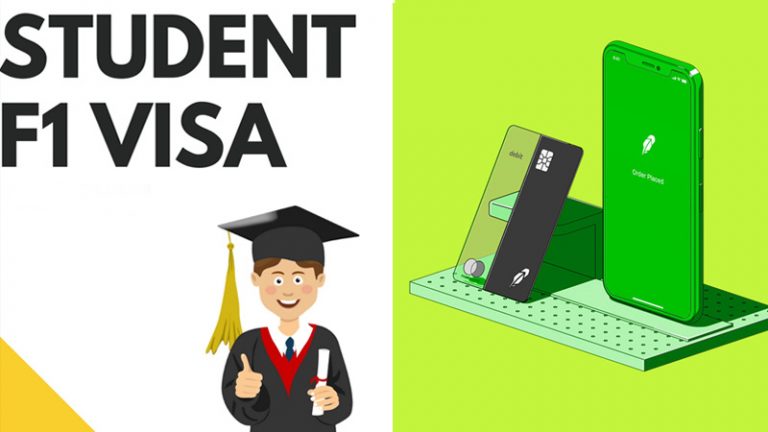Difference Between Linking A Bank Account And Debit Card On PayPal

PayPal requires users to connect both a bank account and/or a debit card after signing up. This often leads to confusion as some users believe that only one of these options is sufficient.
Please rewrite this: Linking your bank account on PayPal is a way to verify your identity. Linking your card, regardless if it’s a credit or debit is an additional way of confirming your identity while also serving as a backup funding source.
In this article, I will clarify the differences between linking a debit card and a bank account on PayPal and explain the reasons why both are required.
Should I link my debit card or bank account to PayPal?
As mentioned in the previous response, linking a bank account helps PayPal verify your identity. Whether you have a credit or debit card, PayPal considers both as credit cards. Linking a card provides additional identification and serves as a secondary funding source. PayPal allows up to three funding sources: your PayPal balance, bank account, and debit/credit card.
Financial institutions, such as banks, credit card companies, and transaction processors like PayPal, are required to verify the identity of account holders and authorized users under the USA Patriot Act Title III Anti-Money Laundering provisions. These provisions aim to prevent terrorism by requiring institutions to take measures to know the identity of bank account owners and those authorized to access or use funds through accounts.
Before opening an account with a bank, you must provide proof of identity. PayPal leverages this requirement to save itself the task of verifying your identity and that’s why linking a bank account is necessary. By doing so, PayPal satisfies its legal obligation to protect itself.
According to PayPal’s FAQs, to verify your PayPal account, you can either link your bank account or get approval for PayPal Smart Connect or the PayPal Extras MasterCard.
Although you can still use PayPal without linking a bank account, it is not recommended as it will have several limitations and restrictions. It’s better to link your bank account for a smoother experience. PayPal may also ask for your SSN at times.
Linking and confirming your card provides additional identification and serves as a secondary funding source, as previously discussed. Also, with a linked debit card, you can perform instant transfers.
Which one is better for you?
Linking your bank account is a requirement for verifying your identity on PayPal and accessing its full features. There are several benefits to linking your bank account to PayPal, including the ability to make purchases and payments online without entering your financial information. Your PayPal balance is the default primary funding source, but you can change it to your bank account or card.
Linking your bank account allows for easy tracking of your spending. After linking and confirming your bank account, it becomes your primary or backup funding source. You can also change which payment method is your primary or backup source at any time.
Paying with your linked bank account on PayPal is secure. The recipient never sees your bank information, and you receive a receipt for each transaction. PayPal also monitors all transactions and informs you of any unusual activity. If an unauthorized payment is made, PayPal will reimburse you within 10 business days of notification, while the transaction is being investigated.
PayPal.com
PayPal permits you to connect MasterCard, Visa, American Express, or Discover for online shopping or sending money to people you know. The billing address on your card must match the one on your PayPal account. PayPal allows multiple cards to be added, but only one can be linked at a time, due to security reasons. If a card is linked to another person’s account (e.g. a partner), it must be removed before linking it to your account.
PayPal requires a card verification number (CSC code) to be provided when adding a card to your account.
Advantages of linking a bank account vs. a debit card on PayPal
Advantages of Linking a Bank Account on PayPal:
Linking a bank account on PayPal offers several benefits over linking a debit card. For one, a bank account is a more secure form of payment compared to a debit card, as your account information is protected behind multiple layers of security.
Additionally, using a bank account as a funding source eliminates the need to enter your financial information every time you make a payment, saving you time and effort. Furthermore, linking a bank account allows you to manage your spending more effectively, as you can keep track of all transactions through your PayPal account.
In case of insufficient funds in your PayPal balance, your bank account can serve as a backup funding source, ensuring that you always have access to the funds you need to make payments.
Advantages of Linking a Debit Card on PayPal:
Linking a debit card to PayPal offers the advantage of instant transfers. If you have a linked debit card, you can transfer funds from your PayPal account to your card instantly, giving you immediate access to your funds. This is particularly useful for individuals who need access to their funds on short notice.
Another advantage of linking a debit card is the ability to use it as a backup funding source if you don’t have sufficient funds in your PayPal balance or your linked bank account. This way, you can ensure that you always have access to the funds you need to make payments, even if your primary funding source is unavailable.
Finally, linking a debit card is convenient for making online payments, as you can use it to pay for goods and services without the need to transfer funds from your bank account.






